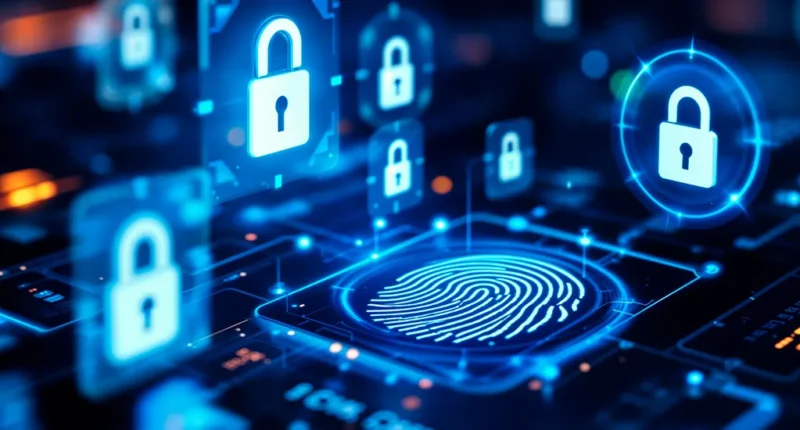Ways to Protect Your Privacy in a Digital World
The interconnectedness of the digital world makes privacy more crucial than ever. With these numerous online sites, cloud storage, and social networking sites, your personal life is not really private. It can be exposed in a minute. Hacking, phishing, and data breaches are all potential sources of misuse of your information. Luckily, there are practicable steps that can help you to secure your personal online information. Here, we will discuss the top tips and best practices on privacy protection in a digital world.
1. Use Strong, Unique Passwords
By using a strong and unique password, you can secure your online accounts. You should always use complex passwords. That consists of uppercase and lowercase letters, numbers, and special characters. If you use simple or easily guessable passwords, it may increase the risk of your data being exposed. It is also essential to use different passwords for each account. It prevents a breach of one account from compromising all others. Also, you should utilize a password manager to securely create and store strong, unique passwords.
2. Two-Factor Authentication (2FA)
Two-factor authentication (2FA) gives an additional security layer to online accounts. It secures your online accounts by requiring another form of verification, such as a text message or an app-generated code, in addition to your password. If an attacker, somehow, gets your password. 2FA can still stop him from getting into your accounts because of this extra step of verification.
3. Virtual Private Network (VPN)
By using Virtual Private Network (VPN), you can secure your personal information. When you use free Wi-Fi, your personal data can be at risk of being exposed. A VPN encrypts your internet connection. In this way, it becomes difficult for hackers or third parties to get unauthorized access to your personal information. When you use public Wi-Fi or want to maintain privacy online, you must use a VPN. VPN has many advantages in data privacy. Some of them are:
- It hides the browsing history.
- It prevents your IP address from tracing.
- It improves security on open networks.
4. Be Wary of Phishing Scams
The common method used by cybercriminals to steal personal information is phishing. You should be aware of these scams. They pretend a valid company or individual. Very frequently, such frauds occur through e-mails, SMS messages, or fake websites. Where users are asked to share login information or credit card numbers. In the following ways, you can avoid these scams:
- Always verify the sender’s email address.
- Don’t give your information to an unsecured site.
- Never click on suspicious links or attachments.
5. Limit Social Media Sharing
Over-posting on social media can put your privacy at risk. The personal information that you post may use by online hackers to their advantage or steal your identity. You make sure that you are exposing yourself through your social media accounts. Limit the audience that views your posts on social media. Do not share confidential details like your address at home, your telephone number, or travel plan. Following are the Social Media Privacy Tips:
- Avoid sharing your location data in real time.
- Use the privacy setting to limit who can see your content.
- Be careful accepting friend or connection requests from people you do not know
6. Update Software and Devices
The easiest route through which hackers can get your personal information is when you have outdated software. Software updates mostly consist of patches that improve the security of the vulnerability. Keep the operating system and apps in your computer and antivirus upgraded. This minimizes malware and ransomware attacks on your computer.
7. Encrypt Sensitive Data
The best ways to protect your sensitive information is Encryption. Files and communications are encrypted so that only those authorized can access your information. Most messaging applications, email services, and cloud storage providers offer encryption as a default feature. Activate encryption on devices and apps wherever possible for increased security.
8. Check Your Online Accounts Frequently
Online accounts should be frequently checked for any unusual or unauthorized activity. Many services have notifications or alerts whenever there is suspicious login activity. You should check your bank statements, social media activities, and online shopping accounts frequently to ensure that there is no unauthorized transaction or change.
9. Be Careful with Application Permissions
Whenever you install apps on your smartphone or tablet, they ask permission. Be careful of the permissions they requested. Some of the apps may require access to your personal data like your contacts, location, or camera without any valid reason. Allow permission to only that app needs to function. Don’t install those apps that requested the excessive access to your computer.
10. Use Secure Browsing Practices
It is very important to browse the web securely for protecting your privacy. You should ensure that the websites you are visiting use HTTPS encryption. Especially, when you are entering your personal or financial information. We should avoid accessing sensitive accounts, such as banking or email, on public Wi-Fi networks without a VPN. Here are some tips for it.
- Use privacy-focused browsers.
- Clear your browser’s cache and cookies regularly.
- Always enable “Do Not Track” settings to limit the amount of data that websites collect during browsing activities.
Final Thoughts
In this digital world, where your personal data is always under the threat of being misused, your first priority should always be to protect it. These best practices can be followed: use strong passwords, enable two-factor authentication, and browse securely. These will greatly minimize the chances of your personal information being compromised. Internet privacy goes beyond reacting to threats. In fact, it is being proactive and taking control of their digital security.
With these tips, you can experience the digital world while keeping private data strictly out of prying eyes.










